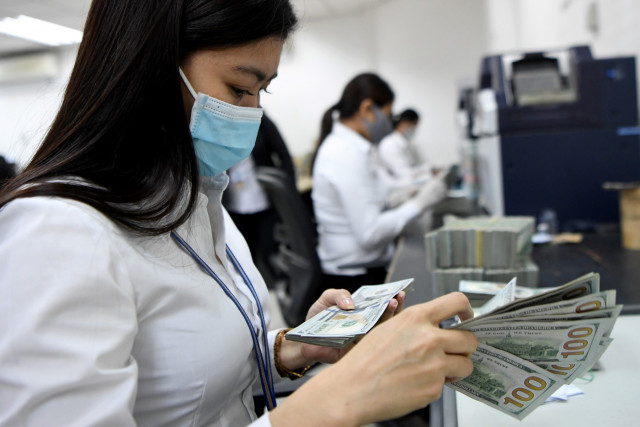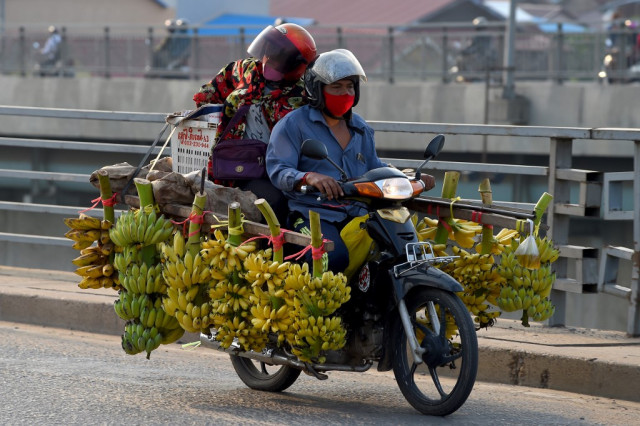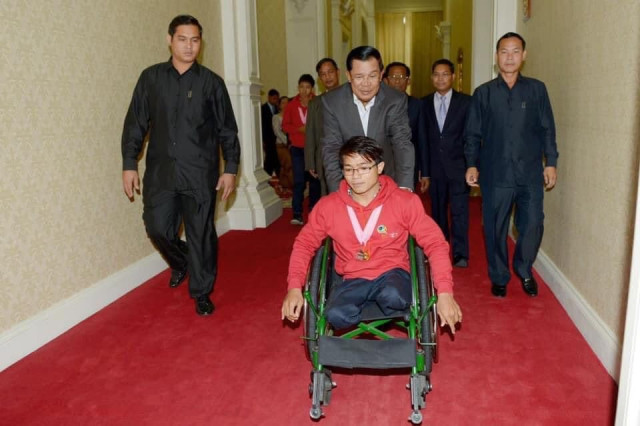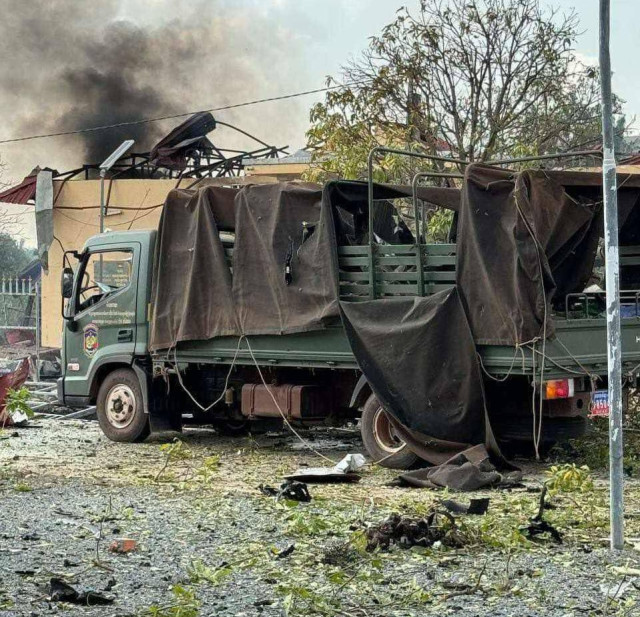Cambodia-China Relationship at Highest Level Ever: Kin Phea
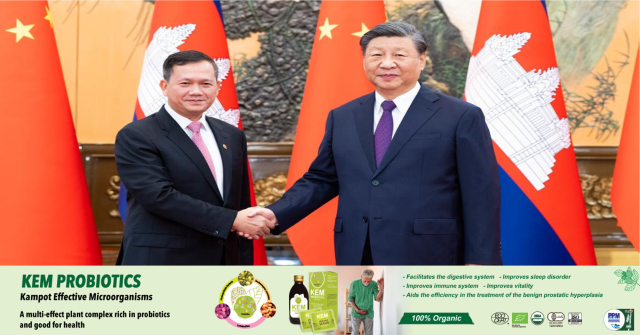
- By Thien Phearin
- February 10, 2024 10:10 AM
PHNOM PENH – Cambodia and China have reached the highest level of their diplomatic ties in history. The government-to-government relationship has been deepened, especially through the upgrade to a comprehensive strategic partnership in 2019.
In people-to-people connectivity, Cambodian people, however, know more about Chinese people than the Chinese do Cambodians, according to Kin Phea, director of the Royal Academy of Cambodia's International Relations Institute.
Thien Phearin: What is your assessment of the Cambodian-Chinese relationship in the past decade?
Kin Phea: Cambodia and China have reached the highest level of diplomatic ties in history. The most important element of the ties is the historic relationship for several centuries between both countries. Also, both stepped up their ties to becoming comprehensive strategic partners in 2019 to form the Cambodia-China Association.
In February last year, both also signed another agreement, the Diamond Cooperation Framework, which strengthened and further deepened the comprehensive relationship between governments from year to year.
Thien Phearin: From my observation, the governments have become closer, but people-to-people connectivity remains low. What is your view on this aspect?
Kin Phea: Cambodian people probably know more about Chinese people than the Chinese do about Cambodians. There are many reasons, including the advertisement factor, news, and Cambodia being a small state.
Most Cambodians have known China for a long time because China is a great powerful country — knowing long enough that Cambodians usually believe that Chinese people are good at doing business. The character and culture of Chinese people also lie within the mindset of Cambodian people.
Regardless, people-to-people exchange might face some challenges. One of these is that some Chinese characteristics do not match the mindset of Cambodians.
For example, many Chinese were coming to Cambodia in the pre-COVID-19 period. They came, invested, and opened online gambling as well. There were stories about Chinese people violating the laws such as shooting and crimes, which made Cambodians think that Chinese come to Cambodia only for online gambling. This is not a good impression.
I was quite disappointed as well with the number of Chinese tourists coming to Cambodia this year. China promised to bring more tourists to Cambodia after COVID-19 to boost the country’s tourism, but the number of Thai and Vietnamese tourists surpassed that of Chinese — which came in third place.
Another problem was about a Chinese movie featuring crimes and online scams in Cambodia, which has made Chinese tourists scared of visiting our country. In this case, the governments of both countries should take measures to tackle this impact.
Thien Phearin: 2024 has been marked as the year of people-to-people exchange between China and Cambodia. Will Cambodia be able to take advantage of the exchange to boost tourism?
Kin Phea: If the exchange is successful, both countries will benefit from it. One of these is a political benefit, meaning that both governments are moving closer to each other.
When the people are getting more understanding of each other in terms of culture, the connectivity will be deepened. Moreover, there will be tourism benefits as well if Cambodia receives around five to six million Chinese tourists.
We are expecting a recovery in tourism as the sector is one of the most important structures in the national economy, which will revive food, accommodation, and other tourism services to create jobs for local people and opportunities for visiting China through this cultural exchange.
As a host, Cambodia, however, has to be able to welcome guests. Our tourism services must be prepared, especially services upon their arrival at the airports, to make them feel welcome.
Tourism operators must do their jobs properly and responsibly because they are considered as the frontline hosts who are capable of giving tourists a good time or a nightmare. They play an important role in making the first impression of the country.
Thien Phearin: The government has established a series of measures to attract more international tourists. Are there any more measures the government should take to further boost the attraction from not only Chinese tourists but also other foreign visitors?
Kin Phea: I think there are already enough measures. However, there is a problem that needs a solution with practical implementation, as some in the sector may have used their position for their personal gain.
Another means is to be aware of an effective way to promote our country to Chinese tourists by using direct and indirect advertisements or other media to show the tourism potential of the country.
Tourism operators and stakeholders must not disrespect their work ethics to not cheat customers. Cheating may benefit them for a short time but working honestly will bring them a lifetime advantage for them and the country.
Thien Phearin: Politically speaking, some people have considered Cambodia as a ‘pawn’ for China, while Cambodia is also strengthening her relationship with other countries too, including France, Japan, and South Korean. What is your assessment on the perception?
Kin Phea: The perception is like an accusation to humiliate Cambodia’s foreign policy. In the constitutional law, Cambodia is an independent country, adhering to neutral and non-aligned foreign policies. Cambodia has been doing well applying the policy to maintain relationships by respecting mutual benefits, state sovereignty and integrity without interfering in any state’s internal affairs.
Since the previous mandates, the government has been diversifying diplomacy. Cambodia has a good relationship with her partners and has been actively working on the diversification, especially under the leadership of the new Prime Minister. Prime Minister Hun Manet has been occupied with paying official visits to regional and international partners to enhance diplomatic ties with those countries. Applying economic diplomacy, such a task is aimed at attracting economic benefits from each other.
Just recently, the Prime Minister visited France which is a great power and represents democracy in Europe. This shows the diversification of diplomacy in Cambodia. This perception may come from some local foreign affairs experts and some countries due to their geopolitical agenda, as they do not want any country to be close to their rivals. However, Cambodia applies the neutrality policy and will not replace a country with any other country.
Thien Phearin: There are common challenges faced by the world nowadays. How do you think Cambodia and China cooperate in bilateral and multilateral frameworks to resolve those challenges?
Kin Phea: At regional and global levels, cooperation in multilateral frameworks is required for resolving common challenges, from COVID-19 to the Russia-Ukraine war to Palestine’s Hamas and Israel conflict and now the Red Sea dispute.
Those challenges are cross-border problems and affect more than one country. Those need the solidity all countries, including Cambodia and China, to overcome. Making geopolitical conflict the barrier for resolving regional and international problems is not a good political decision for the world to overcome those challenges.
Originally written in Khmer for ThmeyThmey, this story was translated by Meng Seavmey for Cambodianess.






